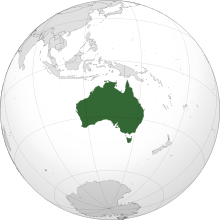Australia In The Asian Century: How Much New Thinking? – Analysis
By RSIS
A new White Paper released by the Australian Government sets an agenda for Australia’s future relations with Asia. It includes a chapter on regional security issues that mainly echoes conventional thinking.
By Sam Bateman
THE AUSTRALIAN Government recently released its White Paper Australia in the Asian Century. This is a wide-ranging document that sets an agenda for Australia’s future relations with Asia. It recognises that the country’s future prosperity and security are inextricably linked to what happens in Asia. While predominantly focused on economic issues, the White Paper also sets a strategic agenda.

The paper points out that the regional security environment is shifting in response to the region’s economic growth, the change in the strategic power of nations, and the behaviour of non-state actors. It considers that large-scale change such as that expected in Asia will put a premium on the development of mutual trust and confidence between countries of the region. It refers to the risk of mistakes and misadventure being high, particularly with the South China Sea and other territorial disputes in the region.
Regional relations
Diplomatic relations in the region are a key area for Australian action recommended in the White Paper. The paper identifies China, India, Indonesia, Japan and South Korea as the initial priorities for targeted programmes to build bilateral relations.
The paper notes the need for deepening Australia’s comprehensive partnership with Indonesia and stepping up engagement with ASEAN more broadly. It recommends focussing more attention on engaging active regional powers such as Vietnam, Singapore, Malaysia, Thailand and the Philippines with security and sustainability issues, along with appointing a Jakarta-based Ambassador to ASEAN to support engagement with the ASEAN Secretariat, ASEAN members and ASEAN-related forums.
According to the White Paper, during Australia’s 2013–14 term as a non-permanent member of the United Nations Security Council, Australia should ensure that regional perspectives are brought to the Council’s deliberations. South Korea, as another new non-permanent member of the UNSC, is an obvious partner for Australia in working towards this objective.
Meanwhile within the region itself, the paper recommends developing the East Asia Summit as a crucial regional institution in East Asia so that it can help manage regional challenges, foster strategic dialogue and promote cooperation on political, economic and security issues.
Australia in the Asian Century claims that Australia’s alliance with the US and a strong American presence in Asia will support regional stability, as will China’s full participation in regional developments. The paper accepts that China’s military growth is a natural, legitimate outcome of its growing economy and broadening interests, but points out that it is important that China and others in the region explain to their neighbours the pace and scope of their military modernisation, in order to build confidence and trust.
Does the White Paper go far enough?
In making these assessments, the White Paper does little more than repeat conventional thinking on regional security, particularly that from outside the region. It is open to question whether the paper goes far enough in reflecting views from within the region itself. Amazingly few of the items listed in the long list of references included in the paper originate from Asia.
The paper recommends that Australia should pursue practical cooperation and build local capability with regional partners across a range of issues such as terrorism, people smuggling, transnational crime, non-proliferation and disarmament, human rights, and disaster mitigation and management. To facilitate these objectives, the White Paper foreshadows the release of a National Security Statement and a Defence White Paper, informed by the Australia in the Asian Century report.
The White Paper steers a middle course in addressing the problem Australia faces in managing its relations with the US and China. It states the need to deepen Australia’s already close and cooperative relationship with China at every level, including enhancing defence cooperation, while at the same time continuing to support US engagement in the region and its rebalancing in the Asia–Pacific.
Lingering perception of “Deputy Sheriff”
In its strong support for US engagement in Asia, the White Paper may do little to remove the perception, still encountered in the region, that Australia is the “Deputy Sheriff” of the US in Asia. In this regard, the White Paper fails to capture the full thrust of Asia’s sense of nationalism and reaction to centuries of Western domination. It may have done better to listen to more voices from within the region itself rather than whole-heartedly endorsing US perspectives and initiatives.
There is much to applaud in Australia in the Asian Century, particularly with regard to the recommendations for deepening diplomatic relations in the region and lifting the Australian community’s perceptions and knowledge of Asian cultures. However, the paper sets an ambitious agenda and successive Australian governments will be challenged to follow-through on its recommendations, particularly in a time of tight budgetary constraints.
With the security agenda, it is clear that Australia still has major work to do to ensure that its voice is heard and respected in the region.
Dr Sam Bateman is an adviser to the Maritime Security Programme at the S. Rajaratnam School of International Studies (RSIS), Nanyang Technological University. He is a former Australian naval commodore who had several senior postings in the strategic policy areas of the Department of Defence in Canberra.
